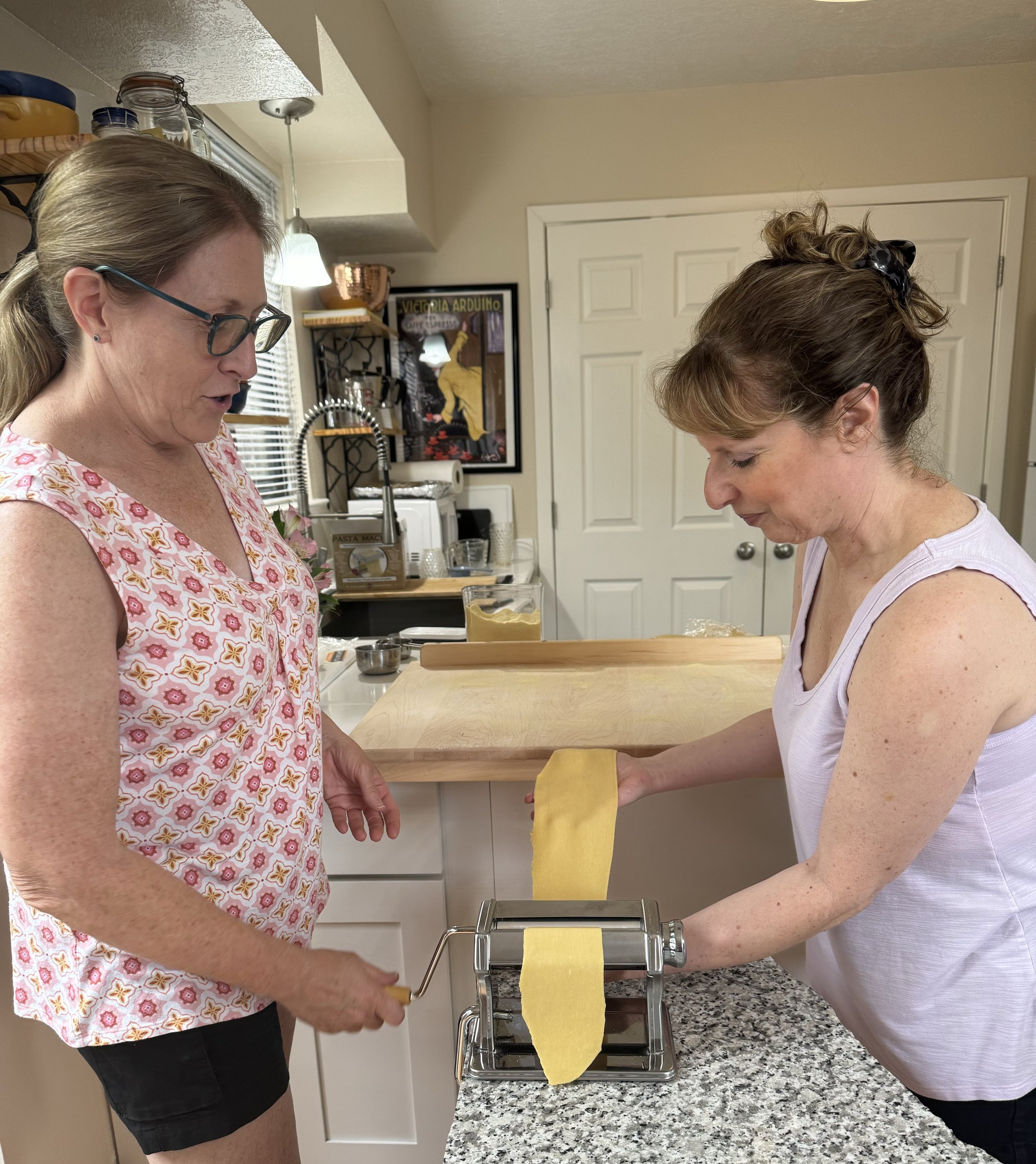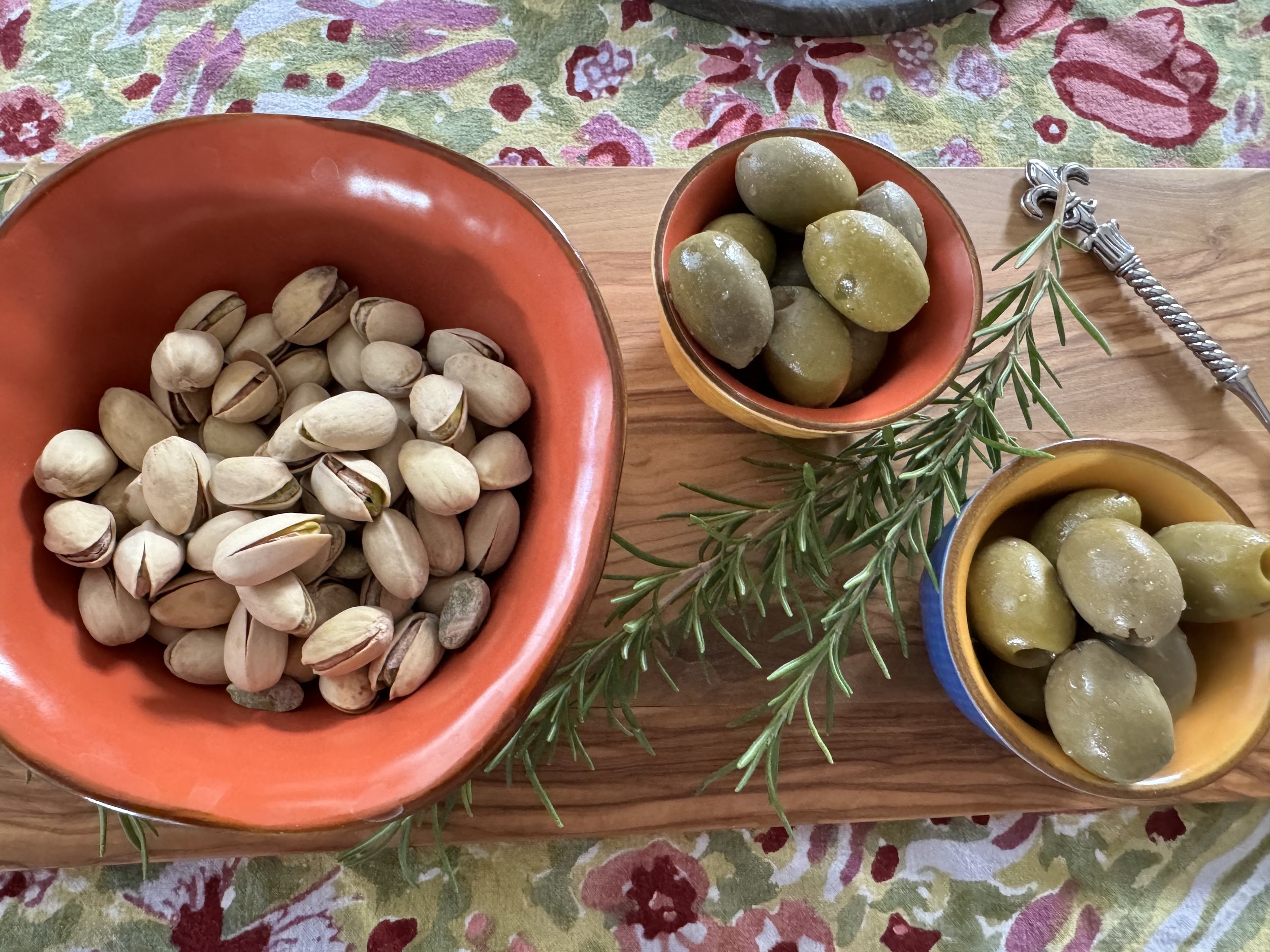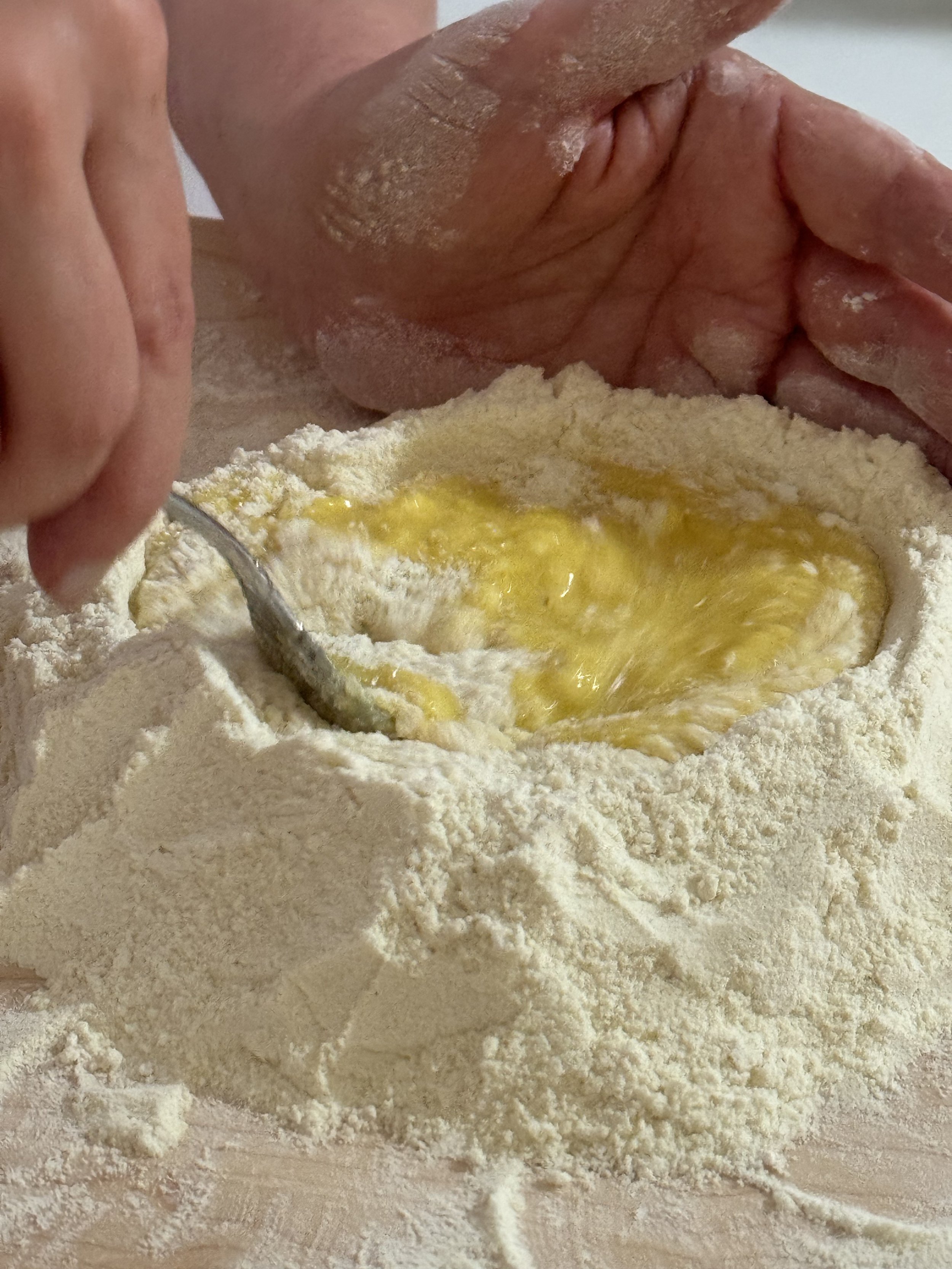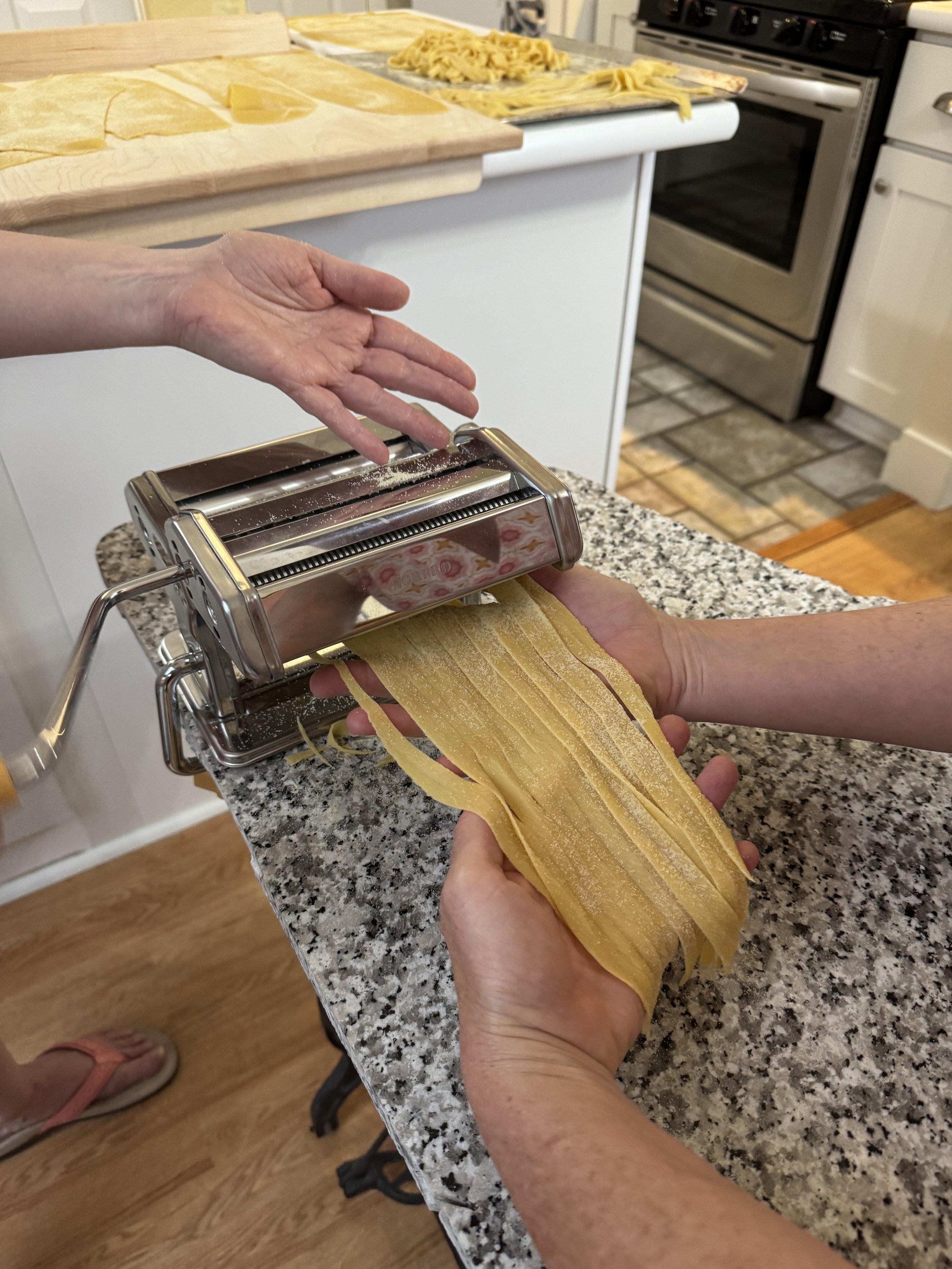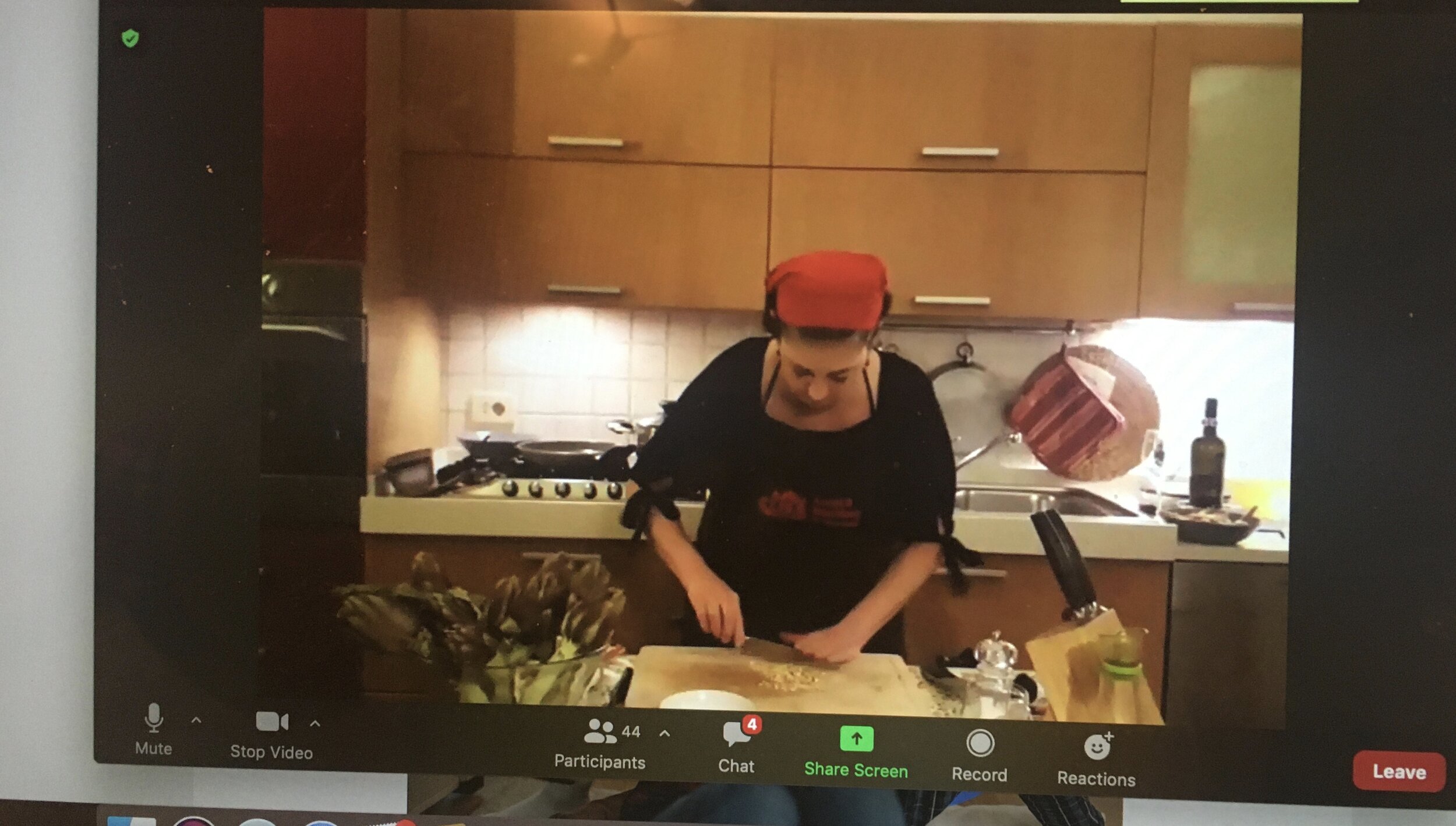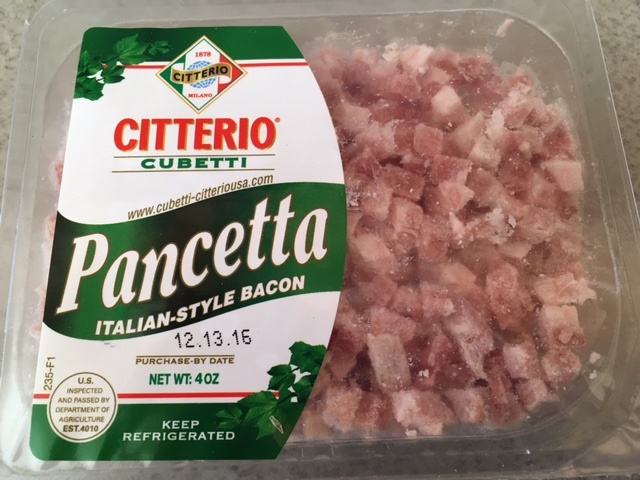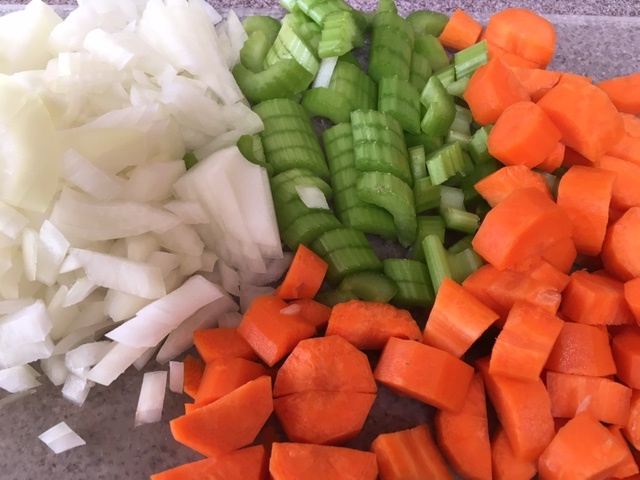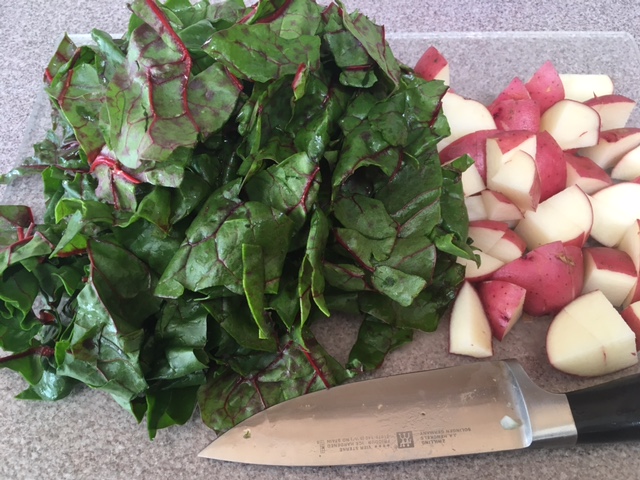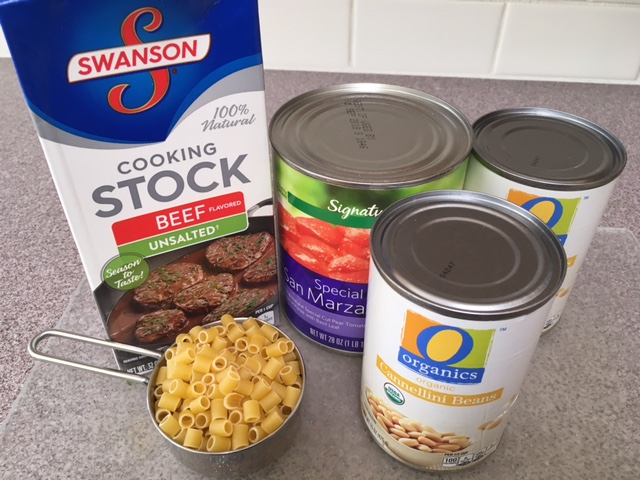An Evening of Pasta Making
It’s always fun to cook with friends. That is especially true when it comes to making pasta. Making pasta fatta a mano (handmade pasta) is enjoyable work and it’s always more fun when there is someone (better yet a group) to share the work.
My 12 year old grandson is a pro !
I am not a professional pasta maker by any means, but I’ve had some experience and have been successful at teaching my 12-year-old grandson, Jack. He is now an independent pasta maker and my chief pasta making buddy. So, when a trio of friends recently asked if I would teach them how to make pasta, I felt up to the task and quickly suggested an afternoon of pasta making followed by dinner.
We quickly agreed to a plan - they provided wine, salad, and dessert while I collected all the ingredients for the pasta and put together a simple pre-pasta making aperitivo. Game on !
There are probably a thousand recipes for pasta dough. Proportions vary as do some of the ingredients – with eggs or without? All 00 flour or some semolina? Salt? Oil? I’ve tinkered with all of these and have found what works best for me is 2/3 flour (type 00) mixed with 1/3 semolina, a pinch of salt, eggs, a drizzle of olive oil and sometimes, especially when working in a dry climate, 1-2 tablespoons of water. This combination makes a great tagliatelle - an egg based pasta, cut into wide strips, perfect for holding onto a sauce. (detailed recipe at end of post)
My friends arrived and, after a fortifying round of white wine sangria and some nibbles, we got to work.
Fortification for the work to come!
After mixing the 00 flour, semolina, and salt, they each made “the volcano”. Into the center went the eggs, olive oil, and 1 tablespoon water. Rule one – don’t break the sides of the volcano and allow the eggs to flow out !
I am happy to report that the eggs were mixed and the volcano walls remained intact as they slowly incorporated the flour into the eggs to make the dough. Success!
Next step was kneading after which the dough was wrapped in plastic wrap to rest for 30 minutes. This was just enough time for another glass of wine, to put the water on to boil, to heat the Amatriciana sauce which I had made the day before, to toss the salad, and set the table. Quick work with several people!
The next step surprised my pasta makeing friends in that the work of rolling the pasta dough into thin sheets took quite a bit of time – even with the use of a pasta machine.
Several hands made the job much easier. After the thin sheets were created, the actual cutting into tagliatelle was much faster. Soon they had a tray full of beautiful, thin strands of tagliatelle. Lots and lots of tagliatelle. Way more than the 4 of us could possibly eat, so some went straight into the freezer.
Cooking the fresh pasta took almost no time. We tossed it with the sauce, some grated parmesan, and wow, perfect pasta !
My friends were pleased with their efforts and pronounced that pasta making was fun work. Dinner was tasty and we had a lot of fun along the way. What a great way to spend a Friday evening!
Time to enjoy all our hard work!
I’ll look forward to our next adventure in pasta making. Maybe pici next time?
Basic Fresh Pasta Recipe
1 cup 00 flour
½ cup semolina flour
Pinch of salt
2 eggs
1 teaspoon extra virgin olive oil (EVOO)
1-2 Tablespoons of water if needed
Combine 00 flour, semolina, and salt. Place on board and make a well in the center. Into the well put the eggs and EVOO. Mix with a fork until yolk and white are well blended, being careful to keep the liquid inside the well of the flour. Slowly incorporate flour, finishing with a firm but not dry dough. Add 1-2 tablespoons water if dough seems too dry (but dough should not be sticky).
Knead dough until smooth and slightly springy. Wrap in plastic wrap and rest for 30 minutes to an hour.
Roll dough into thin sheets (if using a machine start on #1 (the widest setting). Roll, fold in half and roll again. Then roll on progressively higher numbers, ending with #6. Dust sheets of pasta with semolina until ready to cut.
The extra pasta went into the freezer and the next week made a wonderful pasta carbonara.
Cut sheets into desired shape (my machine has rollers to cut either tagliatelle or spaghetti) and toss cut pasta with a small amount of semolina to prevent sticking.
Drop into boiling salted water 6-10 minutes (al dente). Drain and toss with your choice of sauce.
Note: the cut pasta freezes well. A week later it was perfect in a pasta carbonara.
